
Most Georgians agree that more women in parliament would be a good thing. Far fewer think the same of more ethnic minorities, and most think that greater LGBTQ+ representation in parliament would have a negative impact.
Georgia is a diverse country, with numerous languages, religions, and ethnic groups. Yet, parliament underrepresents both women and ethnic minorities relative to their total shares in the population. Moreover, there are no known LGBTQ+ parliamentarians in Georgia’s history. Data from the September 2020 Future of Georgia survey suggests that people are most positive about more women in parliament, followed by ethnic minorities and LGBT people.
The data suggests that people are roughly three times as likely to think that there are too few female members of parliament compared with too few minority members of parliament. Very few people (6%) think there are too many female members of parliament, while roughly three times as many (15%) think that there are too many minority members of parliament.
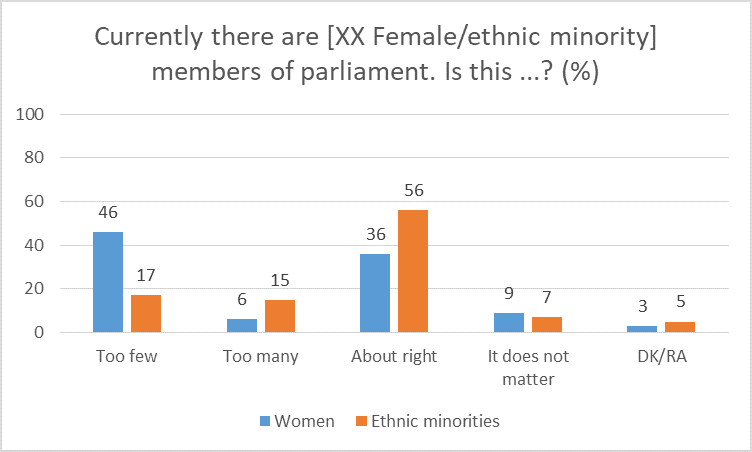
Similarly, substantially more people think that having more women would have a positive impact than think having more ethnic minorities would. Perhaps unsurprisingly given the homophobic riot on 5 July a large majority of Georgians (69%) think that having more LGBTQ+ people in parliament would have a negative impact, and only 4% think it would have a positive impact.
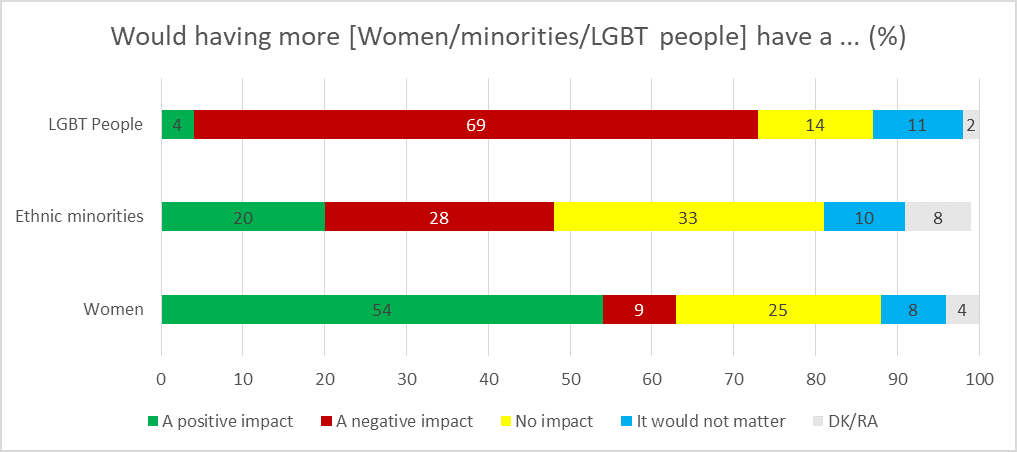
Age, sex, and education predict people’s views on whether the number of female members of parliament are adequate. Younger people (18-34) are 11-12 percentage points more likely to think that there are too few women in parliament compared to older people. People with vocational education are 8 points less likely than those with tertiary education and 12 points less likely than those with only a secondary education to report there are too few women in parliament. Women are 13 percentage points more likely to report there are too few women in parliament.
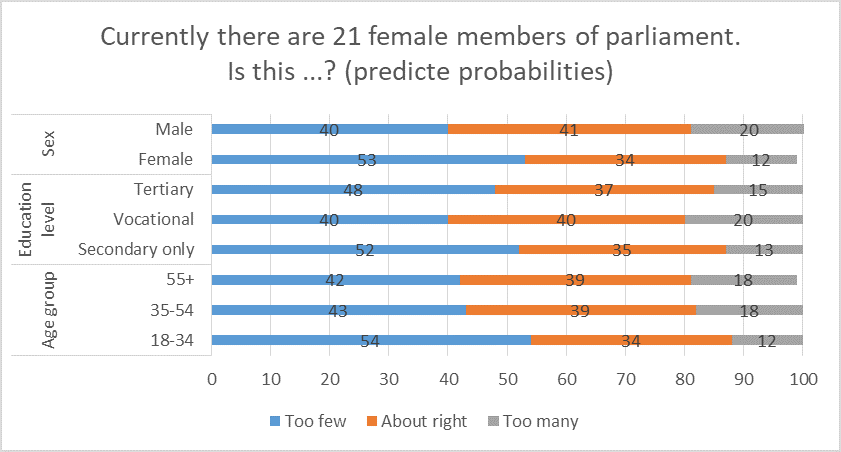
When it comes to whether having more women in parliament would be positive or negative, the data suggests that attitudes vary by age, sex, settlement type, and education type. Women are 15 percentage points more likely to think it would have a positive impact. Young people are 10 percentage points more likely to think there would be a positive impact. People in rural areas are 10 percentage points more likely to report there would be a positive impact than people in Tbilisi. People with vocational education are 7 percentage points less likely to think having more women in parliament would have a positive impact.
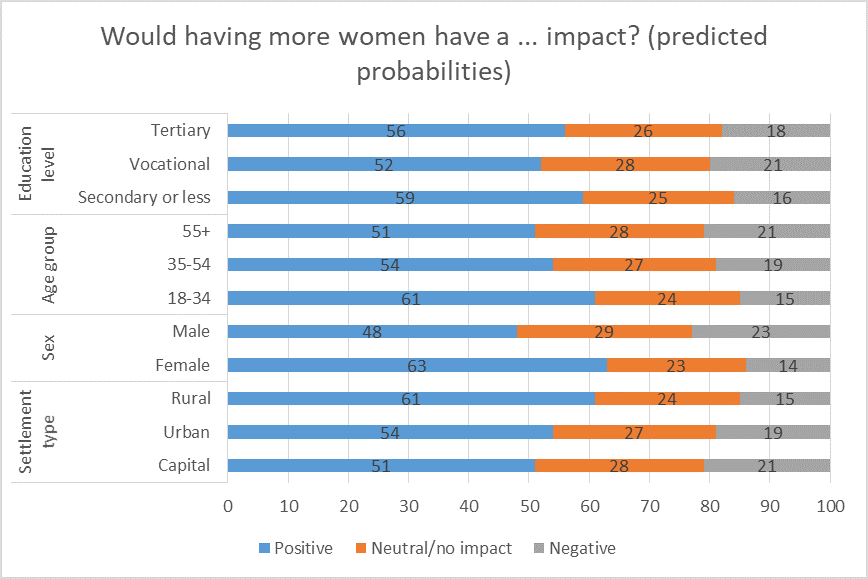
When it comes to the number of ethnic minorities in parliament, ethnicity and education predict people’s attitudes. While ethnic minorities have a 55% chance of thinking that there were too few ethnic minorities in parliament, ethnic Georgians only had a 13% chance. People with vocational education are slightly more likely to think that there are too many ethnic minorities in parliament, controlling for other factors.
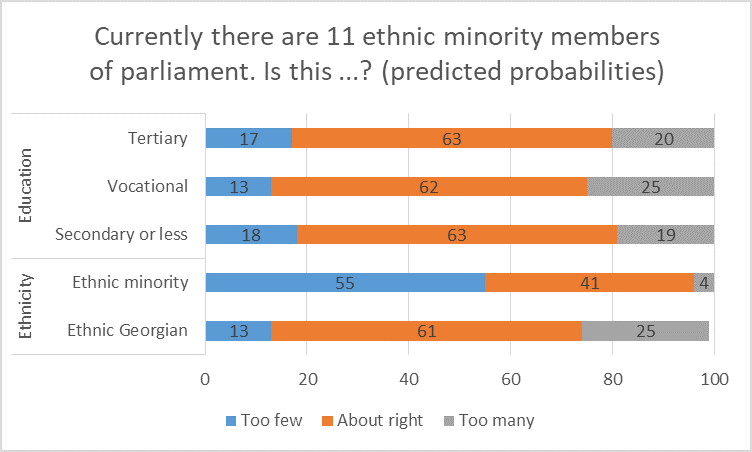
With regard to the impact of having more ethnic minorities in parliament, the data suggests that people with vocational education are more likely to think it would have a negative impact. Ethnic minorities are significantly more likely to think it would have a positive impact.
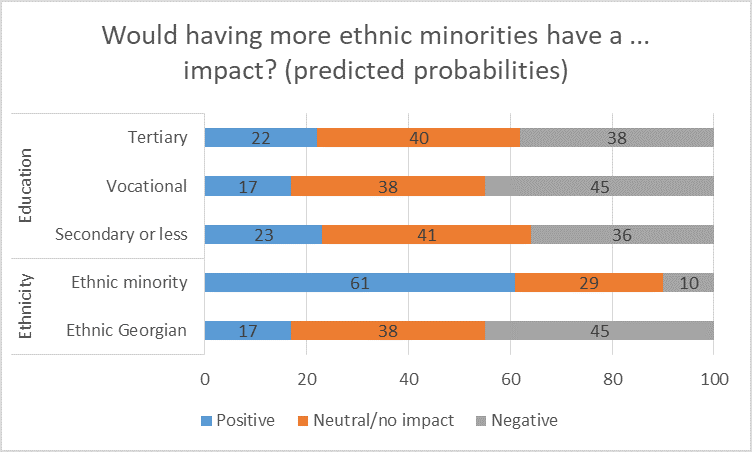
Although relatively few people had positive views of more LGBTQ+ people being in parliament, there is some variance in attitudes. Notably, ethnic minorities are by far the least negative, controlling for other factors. People with lower levels of education also had relatively less negative attitudes as did people in Tbilisi, people under the age of 55, and non-IDPs.
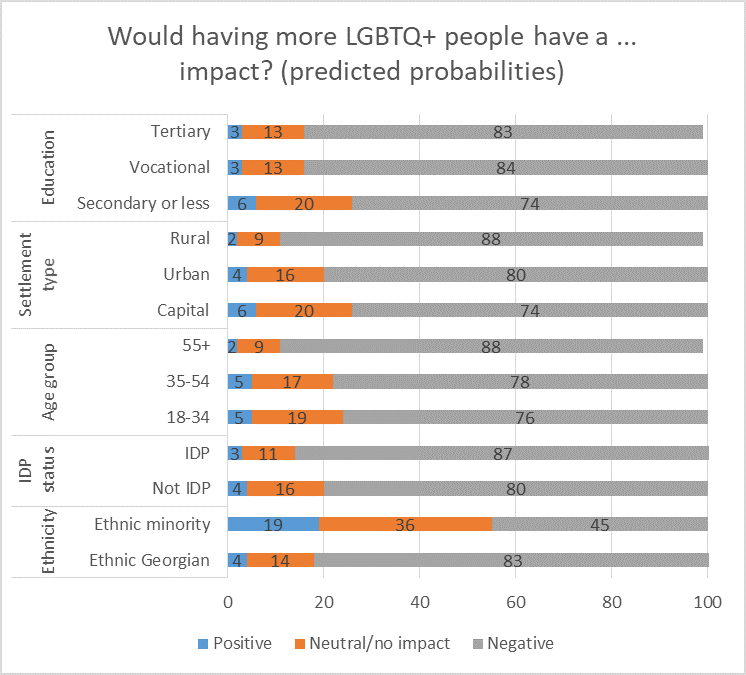
The above data shows a few patterns. Women are the group that people have the most positive attitudes about in terms of representation in parliament, followed by ethnic minorities and LGBTQ+ people. Women and ethnic minorities are significantly more positive about members of their own group being represented in parliament. Ethnic minorities are also the least negative group about increased LGBTQ+ representation in parliament.
Note: The data analysis in the above is based on ordered logistic regression models controlling for respondent age group (18-34, 35-54, 55+), education level (secondary or less, vocational education, or tertiary education), sex (female or male), settlement type (capital, other urban, or rural), wealth (a simple additive index of ownership of 10 durable goods), and IDP status (IDP or not). The data used in this article are available here.
This article was written by Dustin Gilbreath, Deputy Research Director at CRRC Georgia. The views presented in the article do not represent the views of CRRC Georgia, the Carnegie Foundation, the Levan Mikeladze Foundation, the Government of Sweden, or any related entity.








